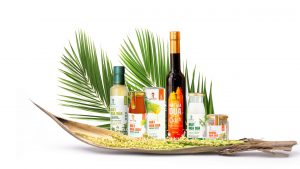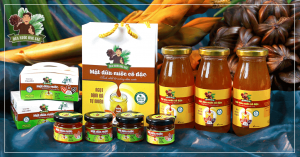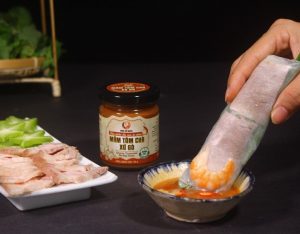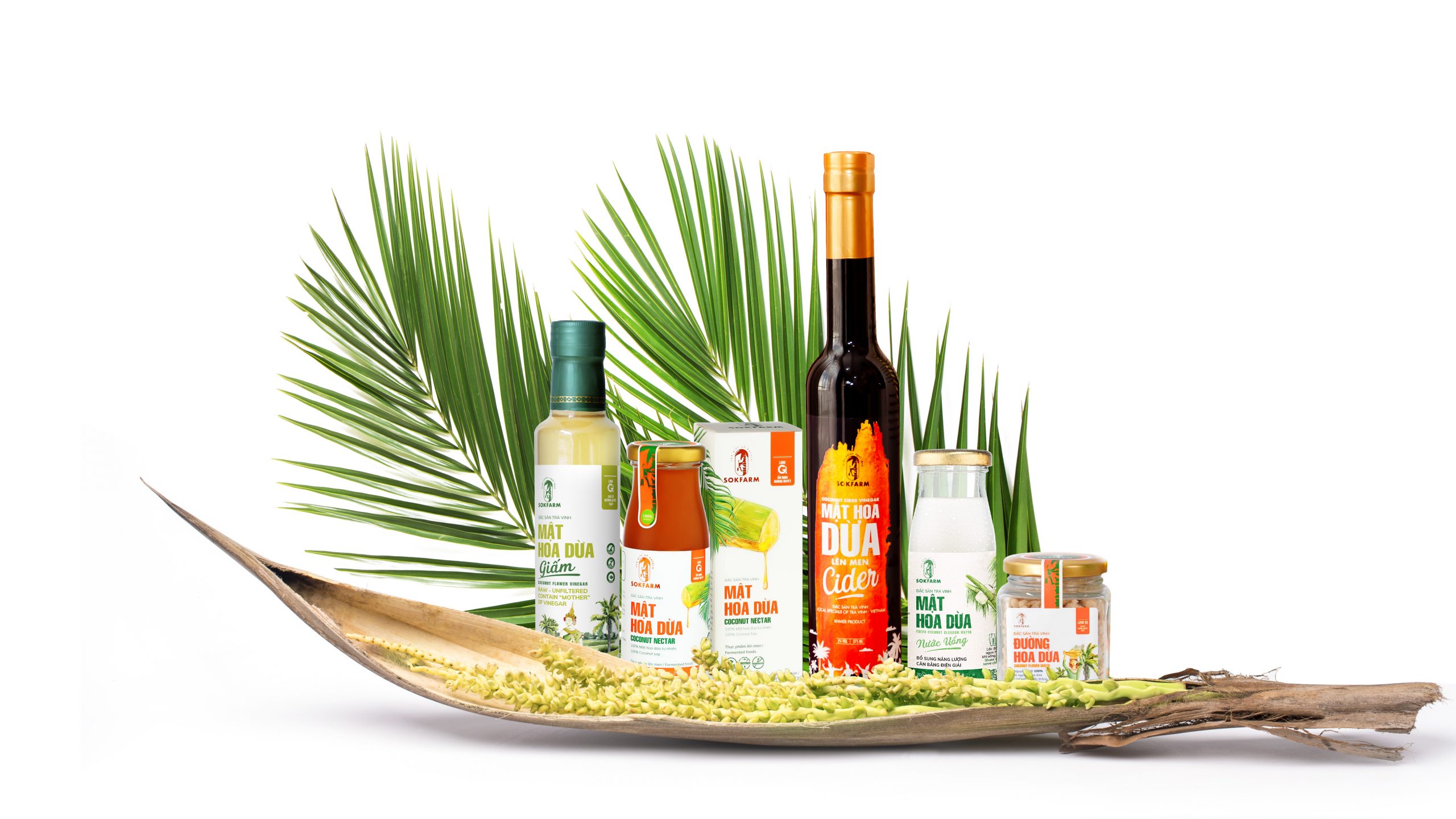START-UPS UTILIZE LOCAL ADVANTAGES
Friday, 14/01/2022 13:07 (GTM +7)
The concept to make products using Sokfarm Coconut Nectar arose in early 2018, when the price of dried coconuts in Tra Vinh province dropped dramatically, with a farmer earning only 2 million VND for 1200 coconuts.
Concerned about these challenges, Ms.Chal Thi came up with the idea of manufacturing coconut nectarine goods from Vietnam’s second largest coconut area – the last point of the great Mekong River – under the name Sokfarm Coconut Nectar in 2019.
 Source: SokFarm
Source: SokFarm
The approach has given the Tra Vinh coconut business a new direction, allowing farmers to enhance their economic value by 2-3 times, thus enhancing local livelihoods and agriculture production patterns of great quality from indigenous people.
Mật Dừa Nước Ông Sáu
Phan Minh Tien, who was born and raised in Can Gio, has witnessed the Nipa Palm’s immense potential. The brand name “Mr.Sau Nipa Palm” was established by researching and learning, combined with agricultural knowledge from his father, to successfully exploit the first drops of Nipa Palm Nectar.
 Source: duanuocongsau.com
Source: duanuocongsau.com
The model for extracting and processing Nipa Palm Nectar products was awarded second place in the Rural Youth Innovation Project Contest in 2019 and was designated a Typical Rural Industrial Product of Ho Chi Minh City in the same year.
Phan Minh Tien’s company has been developing according to sustainable standards since 2019, with the objective of boosting the value of Vietnam’s Nipa Palm. This includes providing jobs for local people, bringing high-quality products to consumers, and contributing to environmental protection.
Khổng Tước Nguyên – Lưu giữ Mắm Xứ Gò
Le Ngoc Thao, who spoke enthusiastically about manufacturing scrub shrimp paste at the Agricultural Startup Contest recently held in Ho Chi Minh City, and then “invited” visitors to try this type of paste. As though this young girl was head over heels in love with fermented sauce, she admitted: “My family has been manufacturing salted fish for more than 70 years, but I don’t tell my classmates. My classmates referred to me as “Thao Mam” when I was in high school, and I hated it”.
 Source: Khổng Tước Nguyên
Source: Khổng Tước Nguyên
Thao returned to her village in early 2020, just as her family was preparing a new batch of fermented sauce, due to the COVID-19 outbreak hitting her workplace. The smell of the old folk fermented fish, which she had always tried to avoid, suddenly reawakened, as if hypnotizing her. Memories of fermented fish flooded back, as did careful foreign imagery associated with each batch of sauce. “After 10 years away from home and refusing the fermented fish, I now wish to work in a traditional job as the next generation. I want to place Xu Go fermented sauce on the culinary map of the world. In July 2020, I launched my business under the Khong Tuoc Nguyen fermented sauce brand.” Thao explained.
Businesses must first process raw materials, incubate fermented fish sauce, rub fish sauce, dry it, test/smell it, pack and keep the finished product…. The manual scrubbing phase is now being used in a semi-public setting. To maintain the quality fresh and avoid contamination as much as possible, technology in a closed system is used.









